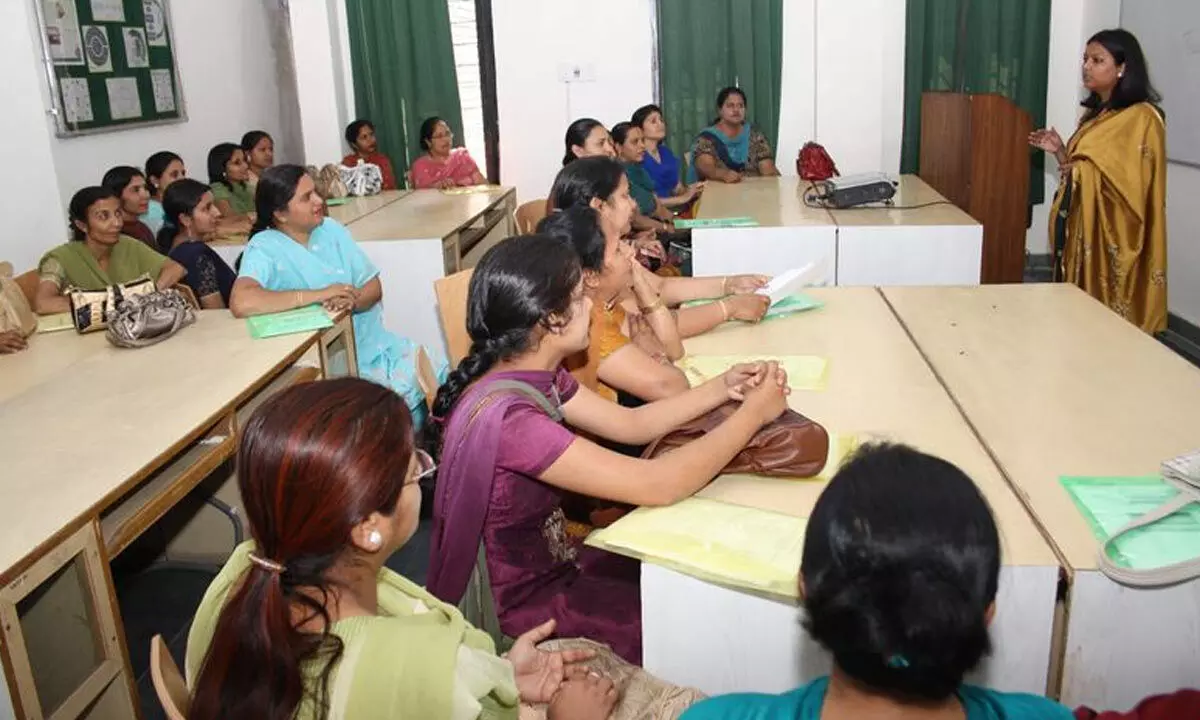Is policy indecisiveness haunting State School Education dept?

Four years on, the state government fails to make a decision on whether to implement NEP-2020 or not
Hyderabad: One step forward and two steps backwards – Is this how the Telangana School Education Department (TSED) functions?
A State Education Department official said, "Things have changed radically in the last 10 years in the education department. Permissions from the higher-ups in the state government are needed for everything from primary to higher education. Further, more or less, the school, secondary and higher education sectors have been functioning under a single thumb rule of whatever the ‘bosses up there say’.” In turn, the schools, colleges and universities have not enjoyed their academic autonomy. They have had no say, even if something adversely affects students studying in government educational institutions in the state, when it comes to the policy decisions over the past 10 years, pointed out the sources.
Take, for example, three years ago, the Telangana School Education Department (TSED) had asked the teachers to take an online training ‘National Initiative for School Heads’ and Teachers’ Holistic Advancement’ (NISHTHA) in two modules – NISHTHA elementary and secondary. This was offered by the Department of School Education and Literacy (DSEL) of the Union Education Ministry. It was rolled out after completing a pilot implementation of the NISHTHA elementary at schools in Andhra Pradesh state.
The programme’s objective was to provide training on aspects for teachers and school heads on educational games, interactive and reflective activities and quizzes to promote joyful learning for educators. Its training objective says that it is meant to amplify ‘student learning, creating inclusive environments. Empowering teachers to address the social, emotional, and psychological needs of the students by functioning as first-level counselors. Also, integrating ICT in teaching, learning, and assessment, creating healthy and safe school environments, developing stress-free school-based assessments focused on learning competencies and raising awareness of new initiatives in school education.’
The NISHTHA initiative was part of implementing the New Education Policy-2020 (NEP-2020).
Speaking to The Hans India, United Teachers Federation state general secretary Chava Ravi said, “Teachers had attended voluntarily to test their knowledge on the training modules. Also, there was a five-day physical training conducted as part of NISHTHA.”
Sources in the TSED said, “There was no clarity on the implementation of NEP-2020 from the state government then. Neither there was a positive nor negative response to it. The TSED had suggested to teachers to go for the training in that situation and since the programme was also being conducted as part of Samagra Siksha for teachers’ capacity building measure", he added.
However, the issue was that the training programme focused, among others, on adopting pedagogy for environmental studies, mathematics, social sciences, languages and science in light of NEP-2020. The Central schools adopted the pedagogy of NEP-2020. Besides, the teachers were trained on the school leadership concepts and applications initiatives in school education, preschool education, pre-vocational education, addressing challenges in school education in COVID-19 scenarios, understanding rights, child sexual abuse and The POCSO Act, 2012.
While new initiatives are changing the face of school education across the nation and globe, here is the case where the TSED is a letdown without any functional autonomy and has to wait for the past four years for the state government to decide to implement or reject the NEP-2020 implementation. However, the successive governments and its education ministers reportedly have found no time regarding the matter.

